This content is restricted to subscribers
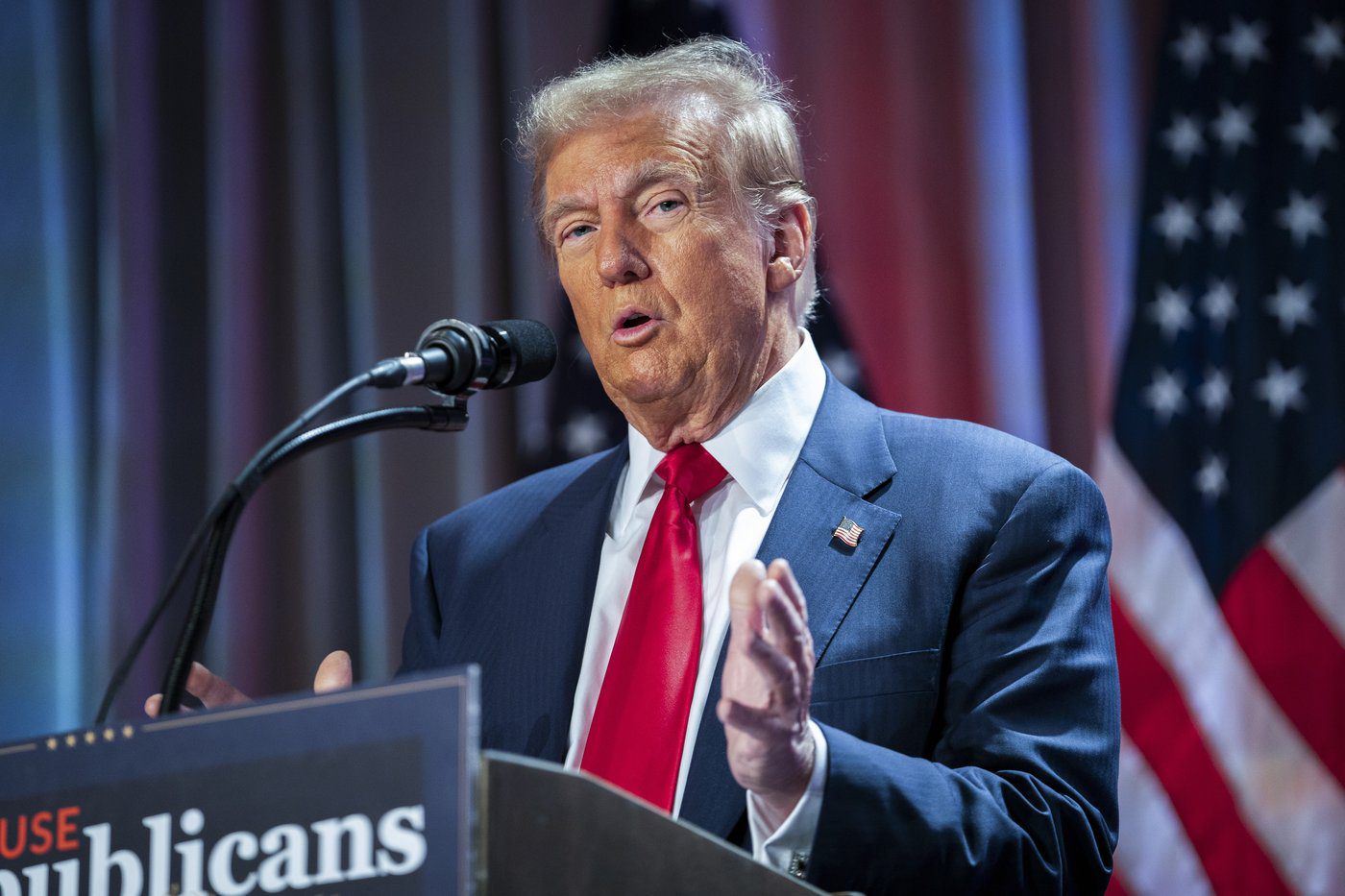
The views, opinions and positions expressed by columnists and contributors are the author’s alone. They do not inherently or expressly reflect the views, opinions and/or positions of our publication.

This content is restricted to subscribers
The views, opinions and positions expressed by columnists and contributors are the author’s alone. They do not inherently or expressly reflect the views, opinions and/or positions of our publication.
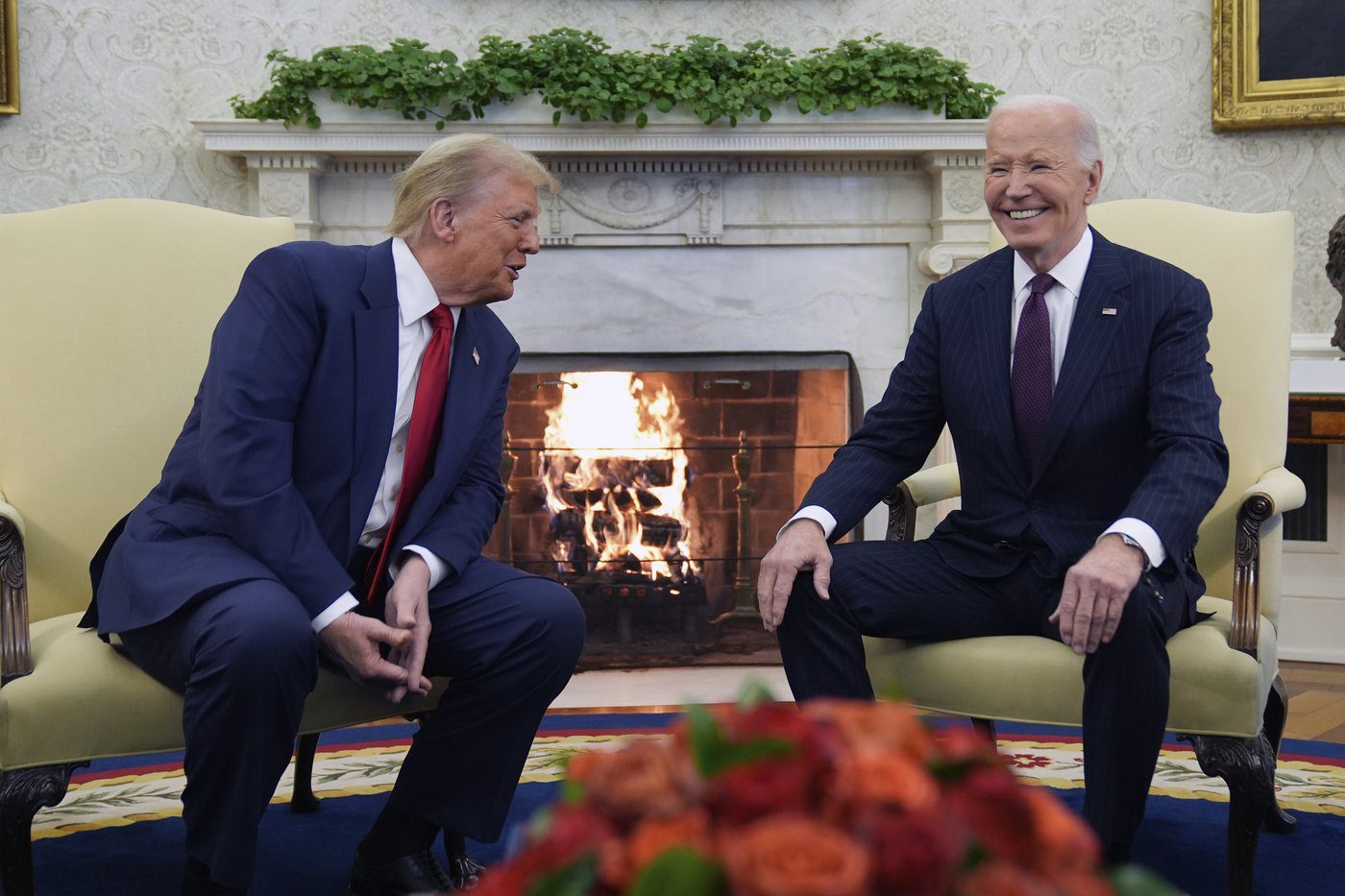
Former U.S. President Donald Trump beat Democratic Vice-President Kamala Harris in the Nov. 5 presidential election. He won the all-important electoral college by 312 to 226 votes, his biggest margin of victory in three elections. Trump will also win the popular vote for the first time, and likely end up a whisker above or below 50 percent.
Several political commentators have suggested this year’s presidential election signalled the end of the era in U.S. politics. They claim it brought down the curtain on former President Barack Obama’s influence – and, in effect, current President Joe Biden, who served as Obama’s Vice-President. There’s certainly something to this analysis, although it’s probably too early to make this pronouncement.
One thing does seem clear. Trump’s victory is a powerful repudiation of the Democratic Party shifting way to the left.
James Carville, a longtime Democratic strategist, blasted his party for succumbing to “wokeism” – or, as he prefers to call it, “identitarianism.” He told New York Times columnist Maureen Dowd in a Nov. 9 interview that voters started to perceive “identity is more important than humanity.” He believes this was a fatal error in political judgment.
“We could never wash off the stench of it,” Carville said, specifically describing the strategy to “defund the police” as the “three stupidest words in the English language.” As he amusingly told Dowd, “it’s like when you get smoke on your clothes and you have to wash them again and again. Now people are running away from it like the devil runs away from holy water.”
There’s also Doug Schoen, another longtime Democratic strategist who regularly appears on Fox News. In a Nov. 6 op-ed for its website, he wrote that Trump’s election win was a “repudiation of the Democratic Party, Joe Biden and Kamala Harris. There is no other way to see it. With over a 2 to 1 advantage in financial resources, the office of the vice presidency and the support of financial and political elites across the country, the fact that Donald Trump has won a convincing victory, in spite of a campaign that clearly got distracted in the last week, speaks volumes about the message the American electorate was sending in this election.”
Schoen provided some additional forward-thinking analysis. “Put another way, voters want a new economic policy that emphasizes smaller government, deregulation and lower taxes,” he suggested. “They want the wall completed and illegal immigration eliminated as much as possible. And they want the crime problem addressed fundamentally and systemically. The election results also suggest the limitations of the abortion issue as a motivating force. Put simply, the fact that the Democrats put virtually all their firepower behind the choice issue suggests the weakness of that appeal.”
This reminded me of Schoen’s 2007 book, The Power of the Vote: Electing Presidents, Overthrowing Dictators, and Promoting Democracy Around the World. A campaign consultant for over 40 years, he’s critiqued the Democratic Party’s leftward tilt for decades. Through the teachings of Daniel Patrick Moynihan, he came to understand that George McGovern lost the 1972 presidential race to Richard Nixon not due to “race hatred,” but rather because the former “had run a terrible general election campaign” and “abandoned the center.”
He was also concerned about the rise of left-wing populist politicians like Howard Dean. The Democrats had become vulnerable against the threat of the left, and the main support base was with liberal voters and little else. He was equally critical of Al Gore’s 2000 and John Kerry’s 2004 presidential campaigns, the latter of which he felt was a repudiation of the party by the voters for this leftward drift.
The Power of the Vote suggested a path to avoid defeat in 2008. “Democrats must face a hard truth: we do not have a natural majority coalition in American politics,” he wrote, and they must work hard to regain their old political coalition. He wanted to see a return to centrist Democratic positions with three mainstream political values: “opportunity (giving every American a chance to succeed), responsibility (the duties we owe to each other), and community (preserving and promoting families).”
Obama, as we know, won the 2008 election. He was a politician of the left, but masked his deficiencies by implementing Schoen’s language and values in his platform. It’s unclear whether this was an intentional strategy, or he and his team accurately read the political tea leaves. Either way, it helped him beat John McCain, a maverick Republican with moderate conservative policies.
Biden moved away from his more natural home in the political centre during his one term in office. His administration attempted to appease progressives and far-left activists at every turn. It weakened his public image, and his poor health and weakened state would have led him down the road to defeat against Trump had he stayed in the race.
Harris’s failed 2024 campaign was similar to McGovern’s failed 1972 campaign. Her deficiencies were far worse, however.
She was a “lousy candidate,” as I pointed out in a Nov. 8 National Post column, who was politically vapid and struggled mightily to explain her policies during tough and friendly interviews. Harris looked out of her element time and time again. Meanwhile, her campaign with Tim Walz “may very well be the most left-leaning ticket the Democrats have ever put forward in a presidential election,” as I noted in an Aug. 23 National Post column.“Harris’ political ideology is also more left-wing than Biden’s ever was on his worst day. She’s pro-abortion, pro-affirmative action, supportive of strict gun-control legislation, a defender of sanctuary cities, believer in restrictive environmental protection laws and one of 10 senators to oppose the United States–Mexico–Canada Agreement because it didn’t tackle climate change. She’s a progressive’s progressive.”
Roger Kimball of The New Criterion went even further. He stated in an Oct. 25 Daily Telegraph op-ed that Harris was “the single worst candidate for president from any party in the history of the Republic.” It’s hard to argue with this astute assessment.
To quote an old proverb, “the more things change, the more they stay the same.” Case in point, the Democratic Party and its far-left tendencies. Senior leadership needs to listen to Carville, Schoen and others and shift back to the political centre. If not, they face the grim prospect of repeated defeats in future presidential elections.
Michael Taube, a long-time newspaper columnist and political commentator, was a speechwriter for former Canadian prime minister Stephen Harper.
The views, opinions and positions expressed by columnists and contributors are the author’s alone. They do not inherently or expressly reflect the views, opinions and/or positions of our publication.

Become a subscriber today!
Register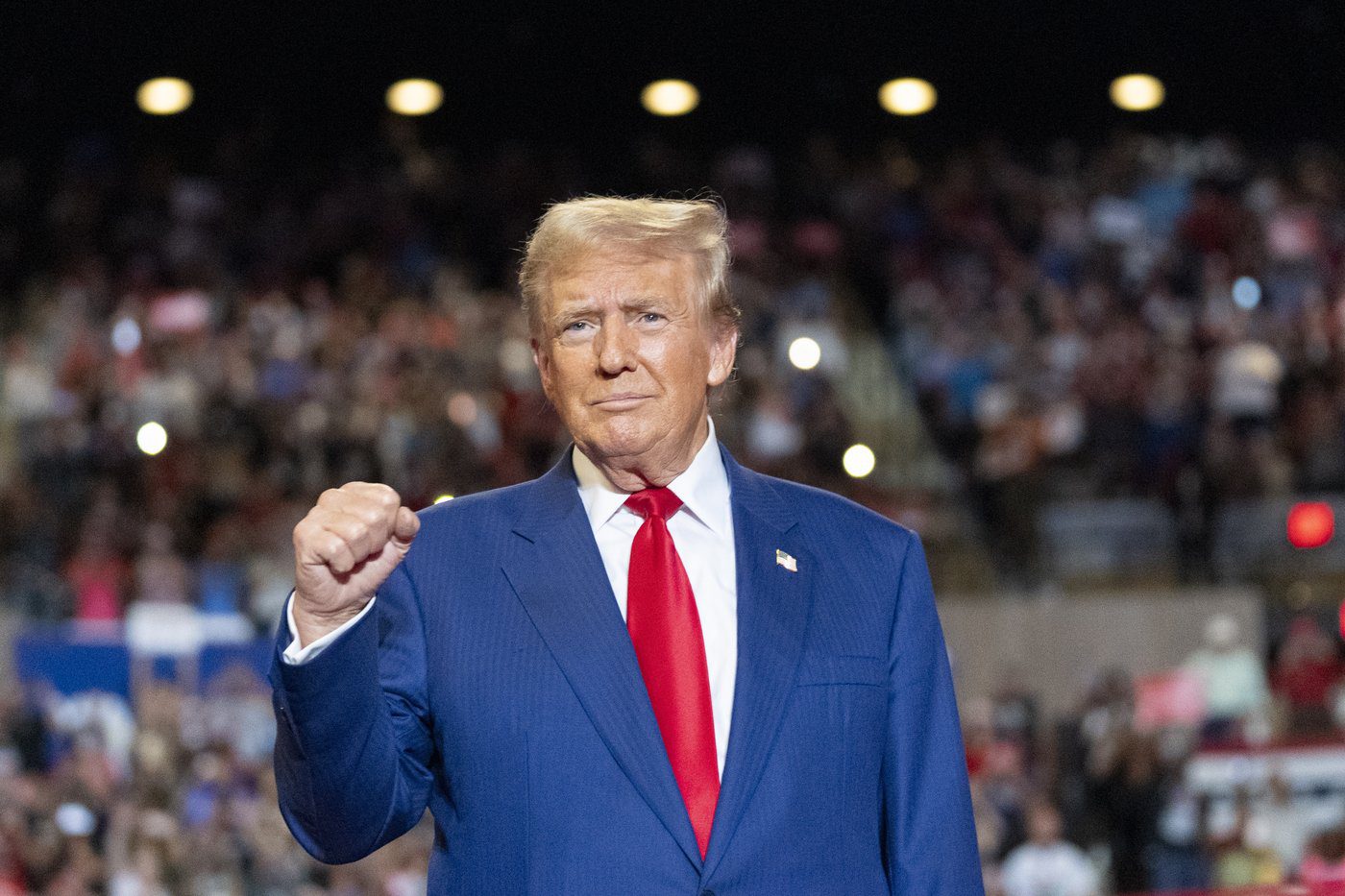
The Economist recently examined the after-effects of the Sept. 10 debate between former U.S. Republican president Donald Trump and Democratic vice-president Kamala Harris. More specifically, the venerable publication highlighted what it viewed as Harris’s post-debate bounce.
According to the Sept. 21 piece, The Economist’s poll tracker showed “Kamala Harris’s nationwide lead over Donald Trump has widened to 4.5 percentage points, from 3.8 points on September 10th, the day of their debate. A 0.7-point improvement is small but potentially significant, and gives Ms Harris her biggest lead yet in our tracker.” The magazine also noted that “it takes a while for new polls to show whether the debate moved the needle on polling averages. The needle has now budged.” It even suggested “the true picture may be even rosier for Ms Harris than aggregated scores suggest, since her bounce is still held down by pre-debate polling.”
While this sounded promising, The Economist also recognized that Harris’s post-debate bounce “comes with two caveats.” The first one was straightforward, “it is not the popular vote that determines who wins, but the electoral college, where the outcome will hinge on a handful of swing states.” It’s a point that many political observers either ignore or conveniently forget when it comes to U.S. presidential elections. As for the second caveat, it was even simpler: “a lot could still change.”
That’s exactly what has happened.
A Sept. 24 CNN/SSRS poll noted that “48% support Harris and 47% Trump, a margin that suggests no clear leader in the race.” FiveThirtyEight listed Harris ahead of Trump 48.3 to 45.8 percent as of Sept. 24, which is a margin of error. RealClearPolitics, which is an aggregate, had Harris in front by 47.9 to 45.8 percent on Sept. 24 – and listed Trump ahead by one percent in a recent Quinnipiac poll.
What does this mean? Harris’s post-debate bounce has been supplanted by Trump’s post-post-debate bounce. That’s not terribly surprising: no matter who had won the Sept. 10 debate, an election bounce was always going to be short-lived.
Winning a modern presidential debate is nearly impossible. Political leaders and parties go through massive amounts of preparation for potential questions and follow-ups. While the chances of a knockout blow are very slim, candidates still learn canned (or memorized) lines, facts and figures to hopefully score some quick jabs. They will engage in mock debates with stand-ins who are asked to mimic their political rivals. And while a few mistakes will undoubtedly happen, most pitfalls, trip-ups and holes in logic are typically dealt with during debate prep.
Today’s presidential debates have therefore become predictable, heavily scripted affairs where major party candidates are coached from start to finish. Which isn’t to say there hasn’t been a few presidential debates that ultimately changed the course of an election.
The first general election debate between John F. Kennedy (Democrat) and Richard Nixon (Republican) on Sept. 26, 1960 is still widely regarded as a major turning point. While most radio listeners believed that Nixon had won the debate, the television audience felt that Kennedy won handily. This was largely due to several factors unrelated to policy, including Nixon’s unfamiliarity with this new format and his refusal to wear makeup under the bright television lights. Kennedy handled the moment better and looked more poised throughout the discussion. Although Nixon performed better in the following three debates, fewer TV viewers tuned in and the damage from the first debate couldn’t be rectified.
There’s also the second U.S. presidential debate between incumbent Ronald Reagan (Republican) and Walter Mondale (Democrat) on Oct. 21, 1984. The former had lost the first debate and was only slightly ahead in the polls. Reagan was far more prepared to combat Mondale this evening, and gave the debate performance of a lifetime. He even famously quipped at one stage, “I want you to know also I will not make age an issue of this campaign. I am not going to exploit for political purposes my opponent’s youth and inexperience.” This moment helped turn a close election into a runaway for the Gipper.
The June 27 debate between Trump and President Joe Biden could be thrown into the mix, too.
Biden had a disastrous debate performance against Trump. He stumbled, made little sense and lost his train of thought on several occasions. Trump, who was slightly ahead in most opinion polls, soon took a commanding lead. This was an unexpected turn of events: Trump had lost the popular vote in 2016 (when he beat Hillary Clinton) and 2020 (when he was defeated by Biden). Things would have likely tightened up before the November election. Had this match-up continued, it’s still difficult to imagine a scenario where Trump didn’t win back the White House.
When Biden dropped out in July, a large number of frustrated progressive voters opted to back Harris as his replacement. Biden’s debate performance became a thing of the past. The left-right divide in the ideological rigid U.S. had been recreated, and the odds of a close presidential election had re-materialized. The small post-debate bounce notwithstanding, that’s where things currently stand.
A final thought. Some political pundits and commentators actually suggested the Harris-Trump debate was similar to the Biden-Trump debate, and could turn the tide of the election. Not only was this comparison inaccurate and rather ludicrous, it was never going to happen. History has shown that presidential debates rarely move the political needle in the direction of one candidate on a permanent basis. To paraphrase The Economist, there are simply too many caveats.
Michael Taube, a long-time newspaper columnist and political commentator, was a speechwriter for former Canadian prime minister Stephen Harper.
The views, opinions and positions expressed by columnists and contributors are the author’s alone. They do not inherently or expressly reflect the views, opinions and/or positions of our publication.
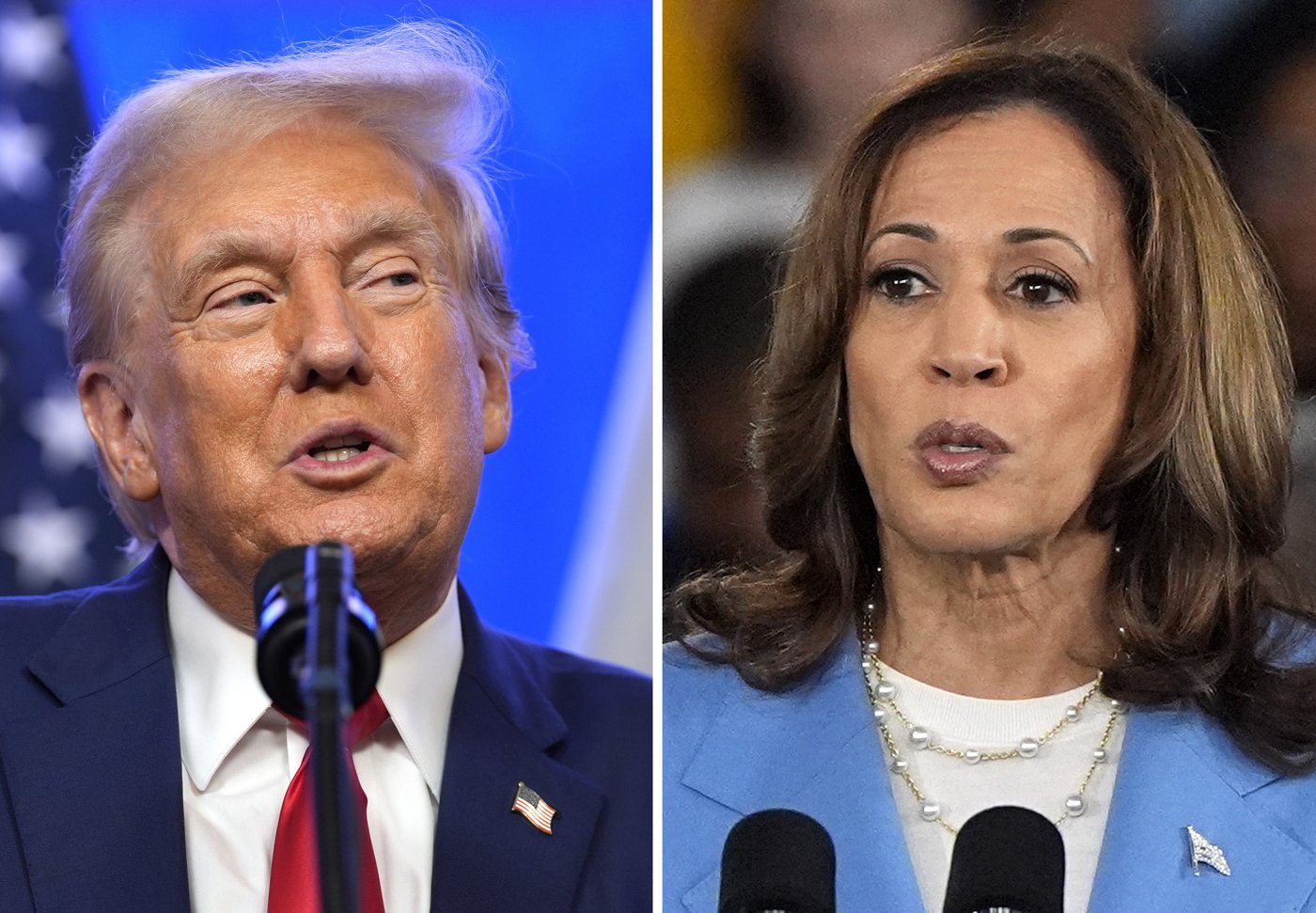
Since getting the ticket from the hands of Joe Biden, Kamala Harris has been hard at work to define Donald Trump – and his entourage – as extremist.
“Donald Trump has picked his new running mate: J.D. Vance. Trump looked for someone he knew would be a rubber stamp for his extreme agenda,” she said a few days after Trump picked his VP candidate.
At the Democratic National Convention, they also framed Trump as an extremist, bringing moderate Republicans to the stage to denounce the 45th President.
Meanwhile, Donald Trump is going at Harris with all the class and fury he can muster since she became the presumptive democratic nominee. “She is a radical left lunatic who will destroy our country if she ever gets the chance to get into office,” Trump said in July at a campaign rally in Charlotte, North Carolina.
Extreme. Radical. These words carry significant weight. Is that really the choice Americans must make?
You are extreme when your positions or actions deviate significantly from what is considered mainstream or moderate. It is not just different, but dangerously out of step with societal norms.
You are a radical when you propose fundamental and immediate change to societal, cultural, and political structures and systems. It is not only breaking from the status quo, but doing so in an abrupt, risky way, endangering social order in the process.
For the longest time, America’s political culture preferred gradualism and pragmatism. The country’s political system is designed to promote compromise and incremental change. The checks and balances that are in place make it difficult to move forward with an extreme or a radical agenda. Or so it used to be.
So here we are today. Over 40% of the population are staunch Donald Trump supporters and not only reject the “extreme” label but are offended by it. And over 40% of American voters are quite supportive of Kamala Harris’ agenda and do not see any radicalism in it, far from it in fact.
So why are these terms being used so much? Delegitimizing the opposition is the obvious answer, but since most voters don’t buy it, why use it at all? Because of the swing voters still at play, an ever-shrinking pool of the electorate, maybe around 10%. And especially the swing voters in the swing states of Arizona, Georgia, Michigan, Nevada, North Carolina, Pennsylvania, and Wisconsin. These states amount to 30 million actual voters, most of them spoken for and not swinging. Leaving around 3 million votes up for grabs.
This group of elusive voters in these battleground states are the key to deciding the outcome of the upcoming presidential election. The political polarization, characterized by a more divided electorate with fewer voters in the middle, has been caused in part by the increase of over-the-top rhetoric as the basic lines of attacks along with record amounts of money spent on attack ads.
Instead of turning down the heat and putting forward a more measured tone to the political discourse, Republicans have doubled down and Democrats are all in. Both parties are engaged in an arms race to further divide and polarize the electorate, to crystallize the swing vote in their favour. That’s all that matters and, sadly, while both candidates are calling for unity, it ain’t coming anytime soon.
The views, opinions and positions expressed by columnists and contributors are the author’s alone. They do not inherently or expressly reflect the views, opinions and/or positions of our publication.
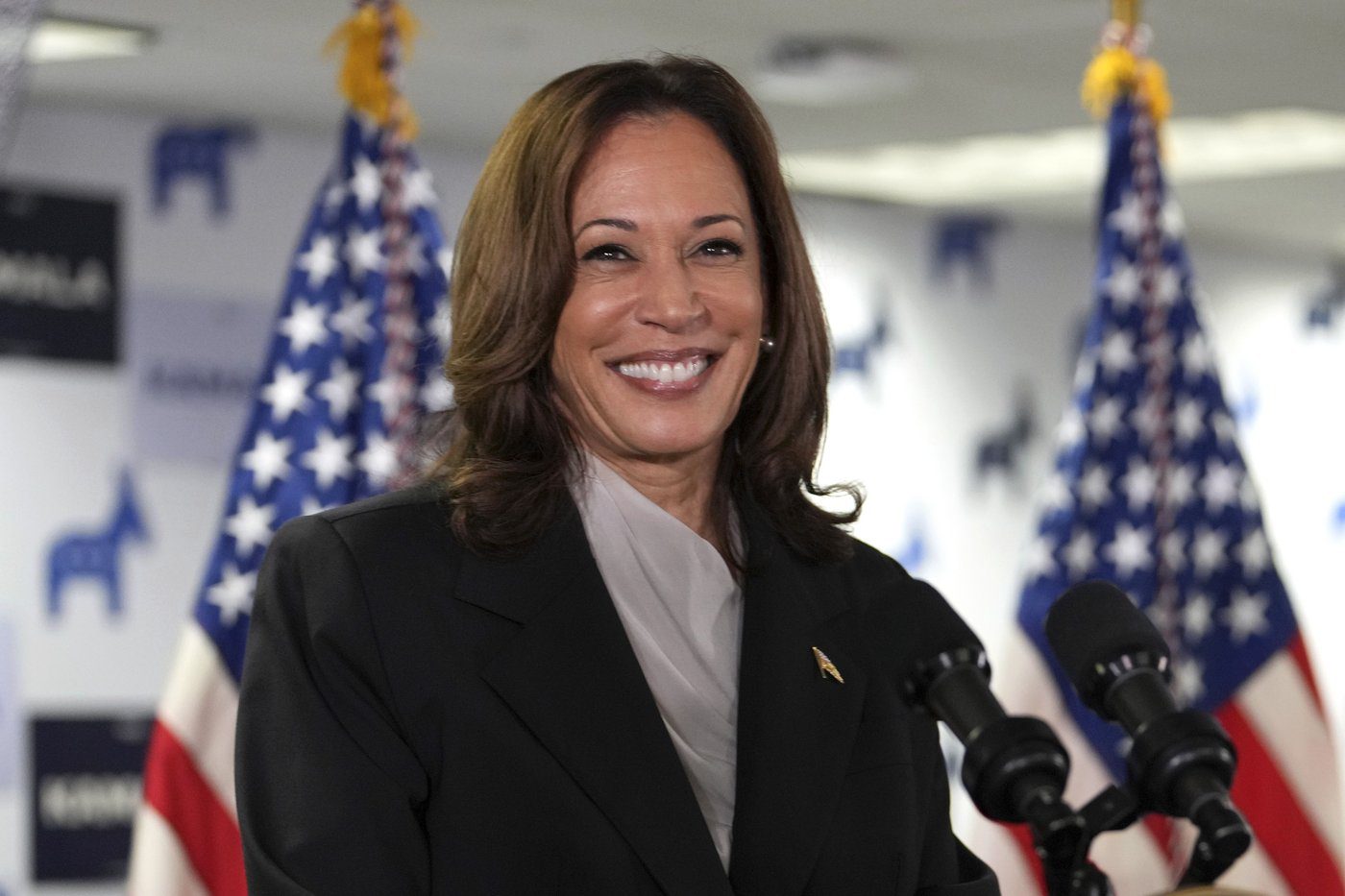
U.S. President Joe Biden announced he was dropping out of the presidential race and endorsing Vice President Kamala Harris on July 21. All hell broke loose shortly thereafter.
Why?
The Aug. 19-22 Democratic National Convention in Chicago was less than a month away. Biden had secured 3,905 of the 3,949 pledged delegates during the presidential primaries. These delegates were now free to support Harris or another candidate. Furthermore, there could theoretically be candidate nominations and direct challenges to Harris’s candidacy from the convention floor. Right in front of the TV cameras, radio microphones and every handheld device known to mankind.
It appears this scenario won’t materialize.
Harris quickly acquired the support of 3,083 delegates who were originally pledged to Biden. This, along with 8 pledged uncommitted delegates and 4 delegates pledged to a long shot candidate, Minnesota Representative Dean Phillips, gives her a grand total of 3,095. That’s well above what the Vice President needs to become the Democratic presidential candidate.
ABC News noted on July 23 that she’s not the presumptive Democratic nominee just yet. This is a term “used to describe a candidate who has won the support of the majority of delegates through primary elections and is thus expected to become the party’s nominee at the convention, presuming those delegates honor their pledged votes.” That’s correct. As long as these delegates follow up on their pledge to support her, any potential challenge from the remaining 854 delegates (and others) will be minimal at best.
The fact that Biden’s delegates are enthusiastically lining up behind Harris doesn’t say much about today’s Democratic Party. She’s a one-term California Senator of little importance who ended up with 0.76 percent of the vote when she ran in the 2020 Democratic presidential primaries. Her tenure as Vice President hasn’t exactly been showered with glory, either – including the revolving door of staffers who’ve left her office.
In fairness, there were only 106 days left in the campaign when Biden resigned. The available options were few and far between. Biden’s endorsement of Harris, along with Hillary and Bill Clinton, Nancy Pelosi and others was more than enough to move the political needle in her direction. It’s difficult to fathom that it would suddenly fall apart.
Still, would an open convention have been a mistake for the Democrats? I don’t think so.
It’s been a long time since there was an open national convention in U.S. politics. The last time it happened for both the Democrats and Republicans was the 1968 presidential election.
Richard Eyre, an author and political consultant, attended the Republican convention that nominated former Vice President and California Senator Richard Nixon over his preferred candidate, New York Governor Nelson Rockefeller. “1968 was…the year of voting reform that allowed potential draftees to vote for the first time,” he wrote in a Deseret News op-ed on July 22. “Both conventions marked a turning point where previously uninvolved groups such as youth and minorities became more involved in politics and voting.” He witnessed an intriguing political content on the Republican side as Nixon won the convention comfortably. Democratic Vice President Hubert Humphrey, on the other hand, secured his party’s nomination after President Lyndon Johnson stepped aside, former Attorney General Robert F. Kennedy was assassinated after winning the California primary and Vietnam War protestors disrupted the party convention in Chicago.
“From the 1968 Republican convention,” Eyre wrote, “we can conclude that the candidate with momentum (Nixon) will usually beat another candidate (Rockefeller) despite not doing as well in head-to-head polls with the opposite party’s nominee.” Conversely, the 1968 Democratic convention showed that “we can guess that the vice president of a stepping-down president will likely prevail as the party’s nominee, and we can take warning that the volatile situation of picking a candidate outside of normal party procedures can further polarize people and potentially lead to protests and violence.”
While no-one would want a repeat of the violence that happened during 1968 Chicago, imagine what could have potentially happened if an open national convention had materialized in 2024 Chicago.
Politicians could have thrown out their names as potential presidential candidates, either individually or a proposed ticket with a running mate. There could have been some interesting debates, discussions, alliances and maneuvering on the campaign floor. The political wheeling-and-dealing would have been enjoyable to watch on television. And if there had been a few tense moments, political analysts and commentators could have chalked it up to emotions running high and encouraged cooler heads to prevail.
Harris would have still been the favourite to win the Democratic presidential nomination. If she had been able to earn the support of ex-Biden delegates at the convention against several high-profile opponents, rather than receiving them by proxy or default, it could have created more legitimacy for her presidential campaign. And while she didn’t go through the 2024 presidential primaries, winning a majority of delegates in a mini-primary (of sorts) is far better than receiving them as a handout.
What if Harris had lost? It would have been unfortunate and embarrassing, but that’s part of the risk you take when you run for politics. Since she wasn’t pushing strongly for an open national convention next month, her preferred route to the nomination was clear.
Michael Taube, a longtime newspaper columnist and political commentator, was a speechwriter for former Canadian prime minister Stephen Harper.
The views, opinions and positions expressed by columnists and contributors are the author’s alone. They do not inherently or expressly reflect the views, opinions and/or positions of our publication.

This content is restricted to subscribers
The views, opinions and positions expressed by columnists and contributors are the author’s alone. They do not inherently or expressly reflect the views, opinions and/or positions of our publication.